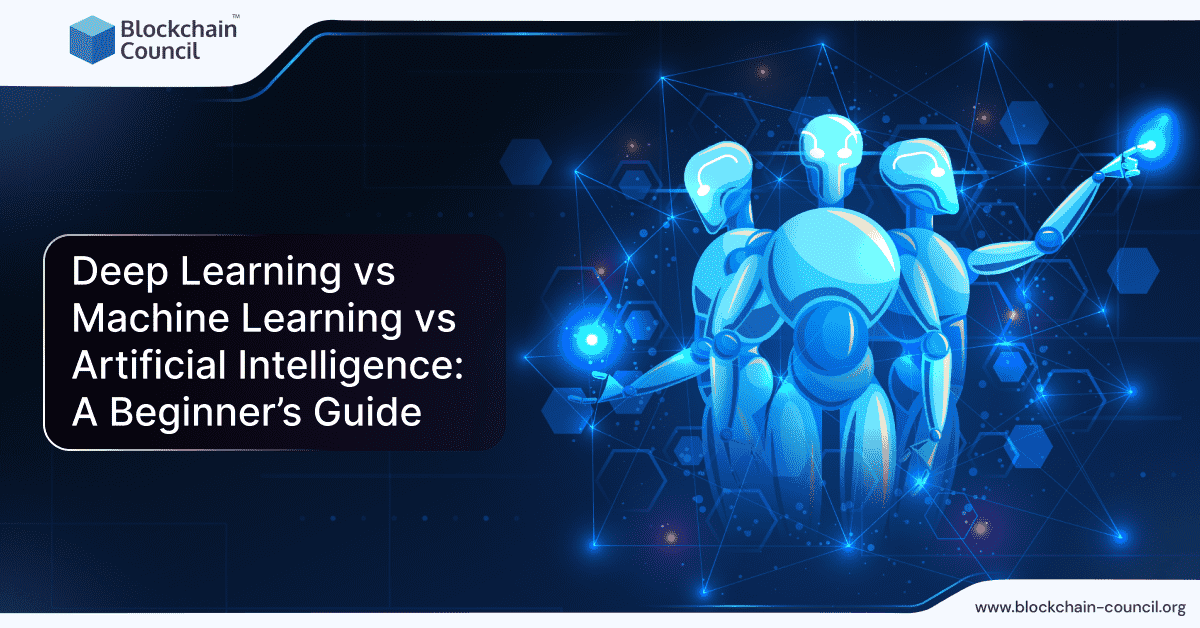
- Blockchain Council
- December 02, 2024
Artificial Intelligence (AI) is transforming the way businesses handle customer experiences. By processing huge data sets, AI uncovers insights into what customers prefer, how they behave, and where they face issues. This helps businesses design customer journeys that are more personalized and effective.
What Is Customer Journey Mapping?
Customer journey mapping involves outlining each step a customer takes when they engage with a brand—from first becoming aware of it to staying engaged after a purchase. By outlining each stage, companies can spot key interactions and potential hurdles. Traditionally, creating these maps required a lot of manual effort and data analysis. AI now simplifies this process by automating data gathering and analysis, resulting in more accurate and adaptable customer journey maps.
For those aiming to master AI’s role in customer journeys, a Certified Artificial Intelligence (AI) Expert™ certification can be a helpful credential.
How AI Affects Customer Journey Mapping
AI helps with customer journey mapping in a variety of ways:
- Data Collection and Analysis: AI systems can handle large data sets from multiple sources like social media, website visits, and past purchases. This helps in identifying patterns and trends in how customers behave.
- Personalized Experiences: By understanding what each customer likes, AI allows companies to create unique experiences and communications. This personalization improves customer satisfaction and engagement.
- Predicting Customer Needs: AI can forecast what customers might want or need in the future, helping companies proactively address potential issues or opportunities.
- Automation of Repetitive Tasks: AI can manage routine tasks, such as sending personalized messages or suggesting products. This allows staff to concentrate on more complex responsibilities.
Becoming a Certified Prompt Engineer™ can be a smart move if you want to effectively guide AI in understanding customer behavior.
Real Examples of AI in Customer Journey Mapping
Several companies have successfully used AI to enhance their customer journey mapping:
Amazon’s Product Suggestions
Amazon uses AI to study browsing habits, past purchases, and reviews. By analyzing this information, Amazon can predict what products a customer may want next, improving their shopping experience and boosting sales.
National Australia Bank’s “Customer Brain”
The National Australia Bank (NAB) introduced an AI-driven tool known as the “customer brain” to study customer habits and predict their needs. As a result, customer engagement rose by 40%, with communications becoming more timely and relevant.
Flight Centre’s Customer Sentiment Analysis
Flight Centre, a travel company, worked with Qualtrics to use AI for understanding customer feelings and identifying areas needing attention. This approach aims to improve the customer experience, especially for younger, online users.
Qatar Airways’ AI Assistant
Qatar Airways launched Sama 2.0, an AI-based virtual assistant, to support customers at airports and during flights. Customers can interact with Sama on their phones, a kiosk, the Qatar Airways app, or even in a virtual space. This assistant combines technology with empathy, creating a friendly experience.
Google’s AI in Maps
Google has added its AI chatbot Gemini to its mapping applications, including Google Maps. This addition improves how the app handles open-ended questions by understanding factors like time of day or season. For example, it can suggest evening activities in a specific city, aiming to enhance user experience.
The Master Artificial Intelligence (AI) Learning Path covers key skills to help understand and improve customer experiences.
Advantages of Using AI in Customer Journey Mapping
Adding AI to customer journey mapping brings several benefits:
- Better Insight into Customer Behavior: AI-driven analysis finds patterns that might go unnoticed otherwise, helping businesses create more effective targeting and personalization.
- Accurate Predictions: AI can anticipate what customers may need or want in the future, allowing businesses to reach out at the right time with relevant messages.
- On-the-Spot Personalization: AI can offer real-time personalization by analyzing large amounts of data, giving each customer an experience suited to their interests, past actions, and current activity.
- Real-Time Decisions: With AI, customer journey maps become more dynamic, helping businesses make decisions quickly based on changing conditions or customer interactions.
Challenges to Keep in Mind
While AI offers numerous benefits, there are challenges that businesses must consider:
- Privacy Concerns: Collecting and analyzing customer data requires strict attention to privacy rules to maintain trust.
- Integration Complexity: Setting up AI systems can be challenging and may require updating existing processes and infrastructure.
- High Costs: Developing and maintaining AI solutions can be costly, so businesses need to evaluate the return on investment.
For those focusing on developing AI solutions for customer journeys, the Certified Artificial Intelligence (AI) Developer™ credential could be a useful asset.
Future of AI in Customer Journey Mapping
AI’s role in customer journey mapping is expected to grow and develop further in the coming years:
Generative AI
Advancements in generative AI are creating more natural interactions, with chatbots that can hold meaningful conversations and understand customer needs better.
Conversational AI
AI is making interactions smoother for both customers and employees by balancing automation with a personal touch.
AI-Powered Tools
Tools like Taskade’s AI User Journey Map Generator are simplifying how businesses create journey maps, making it easier to design websites that fit customer preferences.
Wrapping It Up
AI is improving customer journey mapping by offering deeper insights, enabling personalization, and automating tasks.. As businesses continue to adopt AI in their customer experience strategies, they can look forward to better customer satisfaction, loyalty, and overall performance. However, to fully leverage AI-powered customer journey mapping, it’s important to address challenges like data privacy and the complexity of AI integration. For continuous learning about AI’s impact on customer engagement, our Unlimited Learning Subscription (AI) can be a helpful resource.





































































 Guides
Guides News
News Blockchain
Blockchain Cryptocurrency
& Digital Assets
Cryptocurrency
& Digital Assets Web3
Web3 Metaverse & NFTs
Metaverse & NFTs
